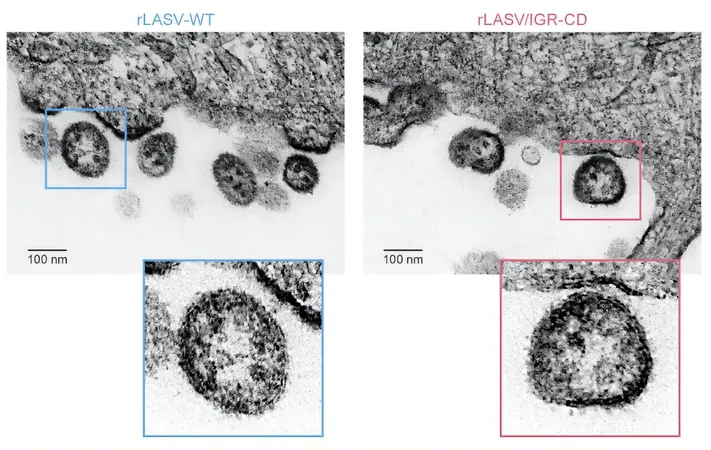
New Study Eases Concerns: Antibiotics and Dementia Risk in Older Adults Unlinked
2024-12-18
Author: Nur
New Study Eases Concerns: Antibiotics and Dementia Risk in Older Adults Unlinked
In a groundbreaking new study, researchers have found no connection between the use of antibiotics in older adults and an increased risk of dementia or cognitive decline. This revelation comes as a significant reassurance for many seniors who may be apprehensive about the potential cognitive effects of these common medications.
The research, published in the journal Neurology, draws from a comprehensive analysis of clinical trial data involving over 13,000 healthy Australian adults aged 70 and older. The study tracked these individuals over a five-year period, revealing that neither infrequent nor frequent antibiotic use was associated with any heightened risk of dementia or cognitive impairment. This included those who may have undergone repeat courses of antibiotics or those on continuous antibiotic regimens.
Dr. Andrew Chan, co-lead author of the study from Harvard Medical School, emphasized the importance of these findings, especially considering that older adults are often prescribed antibiotics more frequently than younger populations. "Given that older adults are more frequently prescribed antibiotics and are also at higher risk for cognitive decline, these findings offer reassurance about using these medications,” he stated.
The Research Behind the Findings
The study utilized data from the ASPREE (Aspirin in Reducing Events in the Elderly) trial, which began in 2010 and focused on the health impacts of daily low-dose aspirin. As part of this broader study, researchers gathered antibiotic prescription information and administered cognitive tests to the participants, who were dementia-free at the start of the trial.
Within this cohort, 62.5%, or around 8,481 participants, had used antibiotics at least once. Researchers employed cognitive assessments that checked various functions including memory, speed, language, and general cognition. They evaluated the participants' cognitive performance at the beginning, after one year, and then every two years.
Over the course of the study, which lasted a median of 4.7 years after the second annual follow-up, 461 incidents of dementia and 2,576 incidents of cognitive impairment without dementia (CIND) were documented. Notably, after considering various health and lifestyle factors, the analysis indicated that antibiotic use had no significant association with an increased risk for both dementia and CIND.
Implications for Future Research
While the findings bring relief to many, the authors of the study caution against overgeneralizing these results. The antibiotic usage data relied on Australia's Pharmaceutical Benefits Scheme, which may not completely reflect actual prescribing patterns. Additionally, the participant demographic was predominantly White, which raises questions about the applicability of these findings to diverse populations.
Epidemiologists from Johns Hopkins University echoed these sentiments, arguing for future research to include a wider range of populations and to delve deeper into how specific antibiotics might affect cognitive health over time.
In a healthcare landscape that is continually evolving, these findings serve as a beacon of hope and provide essential insights that could influence future clinical practices regarding antibiotic prescriptions for the elderly. As the discussions surrounding the gut microbiome's influence on overall health continue to grow, the importance of robust research in this area cannot be overstated.
Conclusion
In summary, if you are an older adult concerned about the links between antibiotics and dementia, this new research brings encouraging news. Antibiotics do not appear to increase the likelihood of dementia or cognitive decline according to the findings from this extensive study. Nevertheless, ongoing research will further clarify these relationships, especially as we aim to understand the long-term effects of medications on our aging population.



 Brasil (PT)
Brasil (PT)
 Canada (EN)
Canada (EN)
 Chile (ES)
Chile (ES)
 España (ES)
España (ES)
 France (FR)
France (FR)
 Hong Kong (EN)
Hong Kong (EN)
 Italia (IT)
Italia (IT)
 日本 (JA)
日本 (JA)
 Magyarország (HU)
Magyarország (HU)
 Norge (NO)
Norge (NO)
 Polska (PL)
Polska (PL)
 Schweiz (DE)
Schweiz (DE)
 Singapore (EN)
Singapore (EN)
 Sverige (SV)
Sverige (SV)
 Suomi (FI)
Suomi (FI)
 Türkiye (TR)
Türkiye (TR)